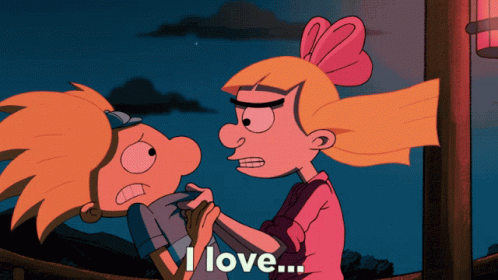Why Do I Get So Angry When Someone Likes Me Romantically?
Dear Brewtiful,
Whenever someone—man or woman—shows romantic interest in me and I’m not interested, I feel an overwhelming surge of anger, disgust, and annoyance. Instead of simply letting them down gently, I find myself seething. Why does their interest make me so furious, and how can I understand what’s happening inside me?
Sincerely,
Puzzled and Peeved
Dear Puzzled and Peeved,
Oh, I feel this one. The unsolicited crush. The flirty DM. The uninvited “Hey, can I take you out sometime?” And suddenly—rage. Not a gentle “Oh no thank you,” but a full-body get away from me before I burn this interaction to the ground vibe.
Let’s get one thing out of the way: you’re not cold. You’re not broken. You’re not mean. But something in you is hitting a panic button disguised as anger. And that deserves to be unpacked—not just managed.
1. The Intrusion Factor: It Wasn’t a Conversation, It Was a Collision
Romantic interest, when unreciprocated, can feel like emotional trespassing. Especially if you didn’t initiate the vibe, flirt back, or give any kind of signal. Suddenly you’re in the spotlight, forced into the role of “polite rejector,” as if that’s your job.
Spoiler: it’s not.
Your anger may not be at the person—it may be at the entitlement baked into the moment.
2. Control, Interrupted
When someone comes at you romantically, especially without emotional context, it flips the script. You were fine. You were being. Now you're responding. And often to expectations you didn’t agree to. That feeling? That hot, primal flash of “Get out of my space”? That’s your body defending your autonomy. It's not an overreaction—it’s a boundary screaming to be respected.
3. The Echo of Past Violations
Here’s the harder truth: if you’ve ever had your space, safety, or trust violated—physically or emotionally—your body remembers. Even if you’ve moved on, your nervous system hasn’t.
So when someone shows interest you didn’t ask for, your body might register it as threat, not compliment. And your anger is a way of preemptively reclaiming control before anything can go wrong. It’s protective. It’s primal. And it’s a response, not a flaw.
4. The Performance Tax
Let’s not pretend the world doesn’t expect you to reject people nicely. To be flattered. To smile while backing away slowly. But being polite when someone crosses your emotional line is its own kind of performance—and performing when you’re uncomfortable is exhausting.
That’s where the frustration comes in. It’s not just about saying no—it’s about having to say it in a way that protects their feelings over yours.
What Now?
You don’t need to “fix” your anger. You need to listen to it. Anger is information. It’s not always pretty, but it’s powerful—and underneath it, there’s likely something soft and vulnerable trying to protect you.
Here’s what I’d suggest:
Journal after it happens. Ask: What made me so angry? Was it the person? The context? The pressure?
Practice neutral responses that don’t require emotional labor. A simple “I’m not interested” is a full sentence. It doesn’t need to be cute or softened.
Explore the root. Therapy isn’t always about deep childhood trauma—it can be about understanding why something seemingly small feels like a full-body revolt. That’s worth exploring.
Remind yourself: your discomfort matters more than their disappointment. Always.
Final Sip?
You’re not overreacting. You’re just finally listening to a part of you that’s tired of shrinking to keep other people comfortable. That rage? It’s clarity, disguised.
And now that you’ve noticed it—you get to choose what to do with it. With honesty. With kindness. But most of all—with you in mind.
With power, protection, and zero apologies,
Brewtiful

